Imagine a metal that’s incredibly strong yet surprisingly lightweight, resists corrosion like a champ, and can be formed into complex shapes with incredible precision. That’s the magic of Titanium Ti64ELI powder, a game-changer in the world of additive manufacturing, also known as 3D printing.
This article dives deep into the fascinating world of Titanium Ti64ELI powder, exploring its properties, applications, advantages, limitations, and various models available. We’ll unpack the technical details in a way that’s engaging and informative, even for those without a background in engineering.
So, buckle up and get ready to discover the potential of this remarkable material!
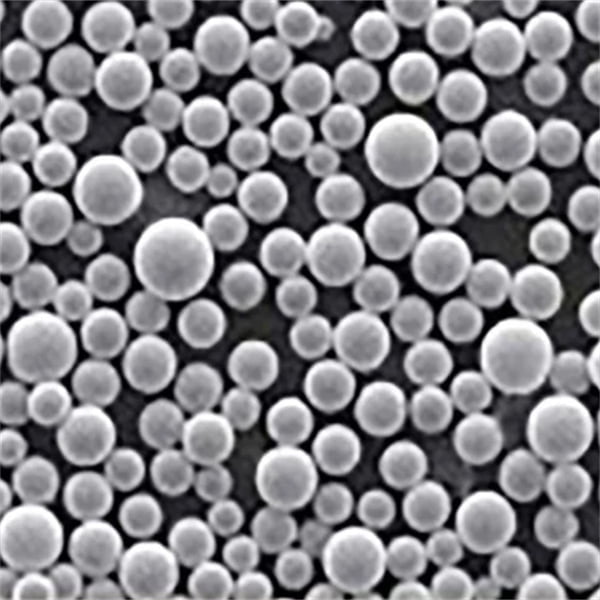
Understanding Titanium Ti64ELI Powder
At its core, Titanium Ti64ELI powder is a metal alloy specifically designed for additive manufacturing processes. It’s crafted from titanium, a naturally strong and lightweight metal, but with a twist. Here’s the breakdown:
- Base Metal: Titanium (Ti) – The foundation for strength and corrosion resistance.
- Alloying Elements:
- Aluminum (Al) – 6%: Enhances strength and hardenability.
- Vanadium (V) – 4%: Improves strength and creep resistance at high temperatures.
The “ELI” in Ti64ELI stands for “Extra Low Interstitial,” indicating a reduced level of oxygen and iron impurities compared to standard Ti64 (Grade 2). This optimization ensures better weldability and overall mechanical properties for the final product.
Key Properties of Titanium Ti64ELI Powder:
- High Strength-to-Weight Ratio: Think of a feather that can punch – Ti64ELI is remarkably strong for its weight, making it ideal for applications where weight reduction is crucial, like aerospace components.
- Excellent Corrosion Resistance: Titanium naturally resists rust and other forms of corrosion, making it perfect for parts exposed to harsh environments, like marine applications.
- Biocompatible: The human body generally tolerates Ti64ELI well, making it a valuable material for medical implants and prosthetics.
- Good Weldability: Parts printed with Ti64ELI powder can be readily welded, allowing for the creation of more complex structures.
- High Fatigue Strength: This powder can withstand repeated stress without breaking, making it suitable for components subjected to constant wear and tear.
the Applications of Titanium Ti64ELI Powder
The unique combination of properties offered by Ti64ELI powder opens doors to a wide range of applications across various industries. Here are some prominent examples:
| Application Area | Specific Examples |
|---|---|
| Ngành hàng không vũ trụ: | Lightweight aircraft components, engine parts, landing gear components |
| Y tế: | Dental implants, bone screws, prosthetics |
| Ô tô: | High-performance suspension components, lightweight engine parts |
| Consumer Goods: | Sports equipment (e.g., bicycle frames), high-end jewelry |
| Oil & Gas: | Corrosion-resistant components for downhole applications |
These are just a few examples, and the potential applications for Ti64ELI powder are constantly expanding as additive manufacturing technology advances.
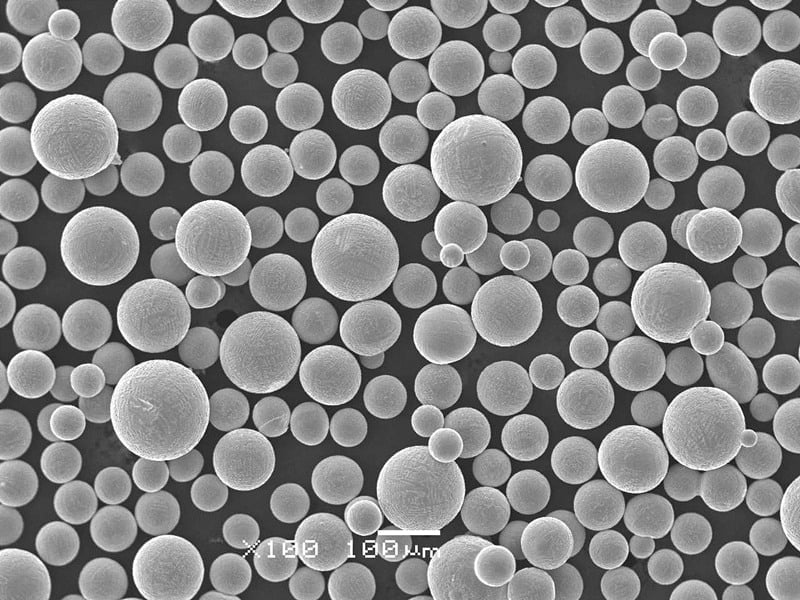
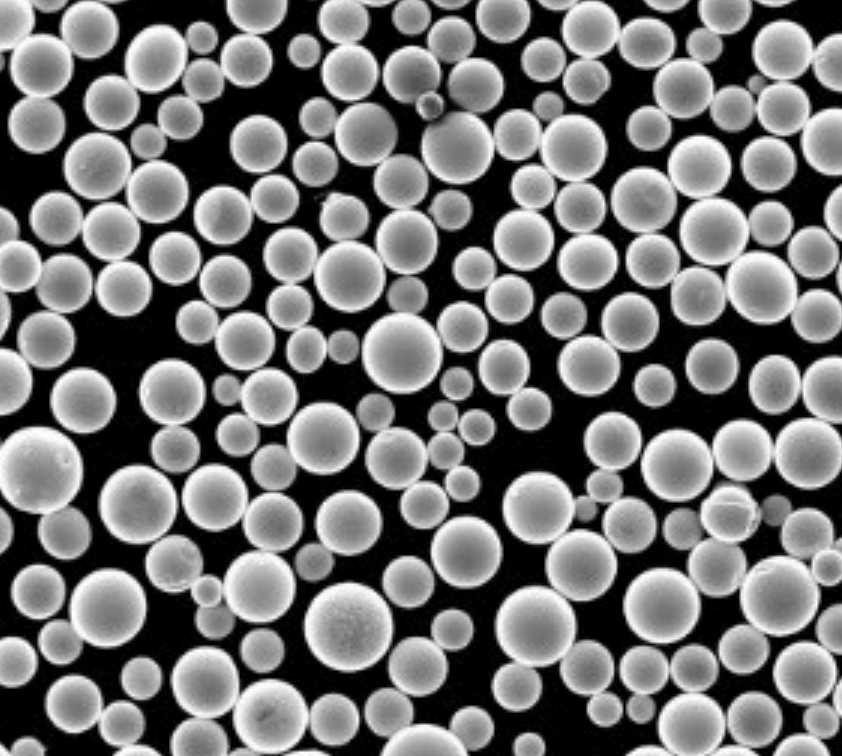
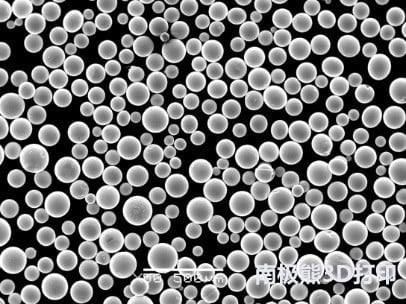
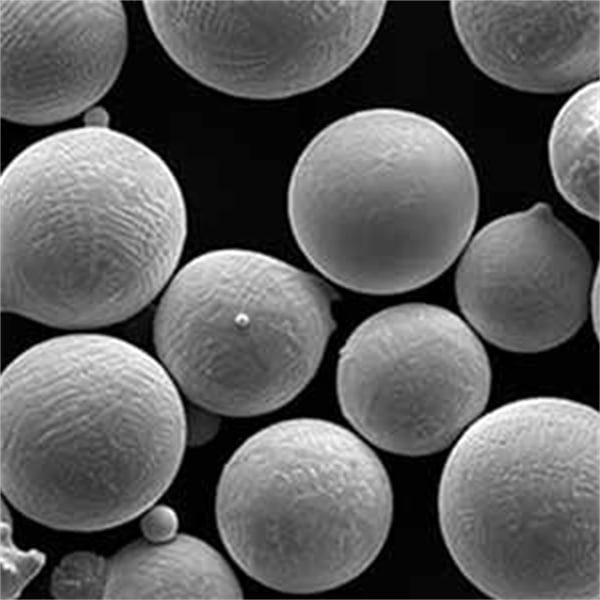
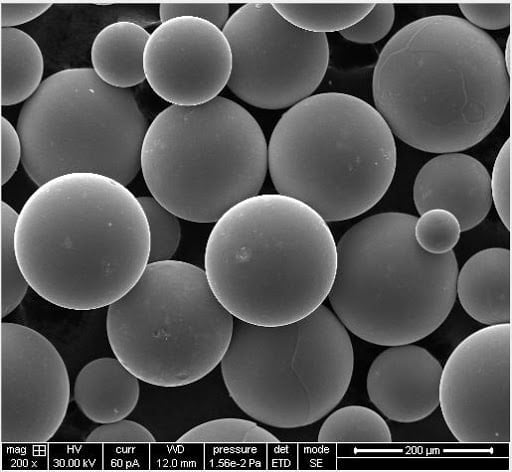
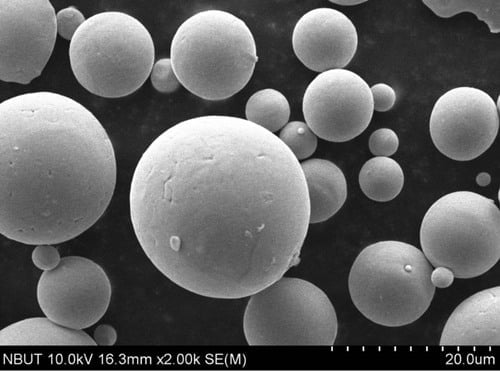
the Advantages and Limitations of Titanium Ti64ELI Powder
While Ti64ELI powder offers tremendous benefits, it’s essential to consider its limitations before diving headfirst. Let’s explore both sides of the coin:
Advantages:
- Design Freedom: Additive manufacturing allows for the creation of complex geometries that are difficult or impossible to achieve with traditional methods.
- Lightweighting: The high strength-to-weight ratio of Ti64ELI powder enables significant weight reduction in components, leading to improved fuel efficiency and performance.
- Reduced Waste: Additive manufacturing minimizes material waste compared to subtractive techniques like machining.
- Customization: Components can be tailored to specific requirements with relative ease.
Limitations:
- Cost: Titanium powder is generally more expensive than some other materials used in additive manufacturing.
- Printing Speed: Compared to some other materials, printing with Ti64ELI powder can be slower due to its high melting point.
- Surface Finish: The surface finish of printed parts may require additional post-processing steps depending on the application.
- Safety Considerations: Handling titanium powder requires proper safety precautions due to its flammability in a fine particle form.
By understanding both the advantages and limitations, you can make informed decisions about whether Ti64ELI powder is the right choice for your specific application.
A Gallery of Metal Powder Models
Now that we’ve explored the core aspects of Titanium Ti64ELI powder, let’s delve into the world of specific metal powder models available. Here, we’ll showcase ten popular options, highlighting their key characteristics and comparing them across various parameters.
1. EOS Titanium Ti64ELI (EOS GmbH):
A widely recognized choice, EOS Titanium Ti64ELI powder is optimized for use with EOSINT M 3D printing systems. It boasts a chemical composition that adheres to ASTM F136 and ASTM F3001 standards, ensuring consistent quality. This model is known for its excellent mechanical properties, corrosion resistance, and biocompatibility, making it a versatile option for aerospace, medical, and other demanding applications.
2. LPW Ti64ELI (LPW Technology):
Another industry leader, LPW Ti64ELI powder is specifically designed for LPW’s selective laser melting (SLM) machines. It offers a high degree of sphericity (roundness) and flowability, crucial factors for smooth printing processes. Similar to EOS’s offering, LPW Ti64ELI powder complies with ASTM F136 standards, delivering exceptional strength-to-weight ratio and fatigue resistance.
3. ALD Ti64ELI (Additive Manufacturing Limited):
Produced by a UK-based company, ALD Ti64ELI powder is known for its tight particle size distribution. This consistency translates to improved printability and minimizes the risk of defects in the final product. ALD also offers a pre-alloyed version of Ti64ELI powder, eliminating the need for separate alloying elements during the manufacturing process.
4. Höganäs AM Ti64 (Höganäs AB):
Standing out for its cost-effectiveness, Höganäs AM Ti64 powder is a good option for applications where budget is a major consideration. While maintaining excellent mechanical properties, this model may have a slightly higher oxygen content compared to some premium offerings. It’s a suitable choice for prototyping or less critical parts.
5. Carpenter Additive AM3D Ti64ELI (Carpenter Technology Corporation):
Backed by a reputable name in the metal industry, Carpenter Additive AM3D Ti64ELI powder prioritizes high performance. It boasts exceptional strength, ductility, and fatigue resistance, making it ideal for aerospace and high-stress applications. Carpenter offers various particle size distributions to cater to different printing requirements.
6. SLM Solutions Ti64ELI (SLM Solutions GmbH):
Tailored for use with SLM Solutions’ 3D printing machines, this model ensures compatibility and optimized printing parameters. SLM Solutions Ti64ELI powder delivers a good balance of mechanical properties, printability, and cost, making it a well-rounded choice for various industries.
7. GfE Additive Ti Powder (GfE Gesellschaft für Elektrometallurgie mbH):
Offering a broader range of particle sizes compared to some competitors, GfE Additive Ti Powder provides flexibility for users with diverse printing needs. This model prioritizes good flowability and packing density, leading to improved build quality. It’s a suitable option for prototyping and functional parts.
8. Elementum Ti64ELI (Elementum 3D Printing):
Known for its tight chemistry control, Elementum Ti64ELI powder ensures consistent material properties across batches. This translates to predictable printing behavior and reliable final product quality. Elementum offers various powder characteristics to cater to specific printing platforms and applications.
9. Poeton Technologies Ti64ELI (Poeton Technologies Inc.):
A relatively new player in the market, Poeton Technologies is making waves with its innovative powder production methods. Their Ti64ELI powder boasts high purity and excellent flowability, leading to superior printability and minimal waste. This model is a promising option for users seeking cutting-edge powder technology.
10. TRUMPF Titanium Ti64ELI (TRUMPF GmbH + Co. KG):
Developed specifically for TRUMPF’s Laser Metal Fusion (LMF) systems, this model ensures seamless integration and optimized printing parameters. TRUMPF Titanium Ti64ELI powder prioritizes high density and good flowability, leading to strong and reliable printed parts.
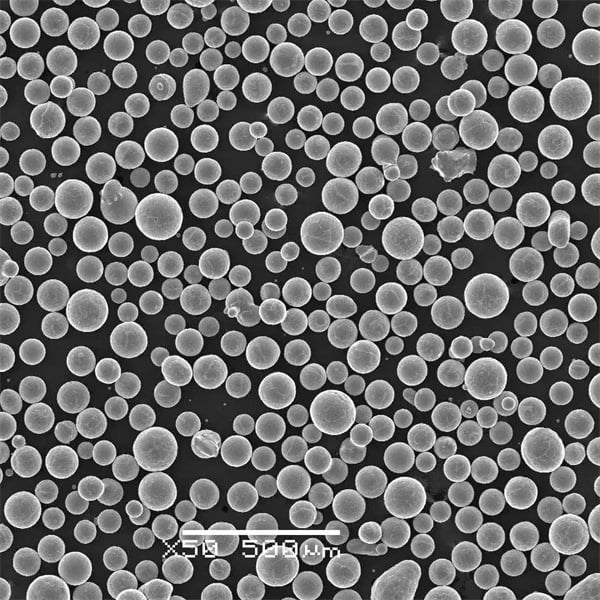
Comparing the Options: A Side-by-Side Analysis
While all these models fall under the umbrella of Titanium Ti64ELI powder, there are subtle differences to consider when making your choice. Here’s a comparison table highlighting key parameters:
| Feature | EOS | LPW | ALD | Höganäs | Carpenter | Giải pháp SLM | GfE Additive | Elementum | Poeton | TRUMPF |
|---|---|---|---|---|---|---|---|---|---|---|
| Nhà sản xuất | EOS GmbH | Công nghệ LPW | Additive Manufacturing Limited | Höganäs AB | Carpenter Technology Corporation | SLM Solutions GmbH | GfE Gesellschaft für Elektrometallurgie mbH | Elementum 3D Printing | Poeton Technologies Inc. | TRUMPF GmbH + Co. KG |
| Primary Application | Aerospace, Medical, Dental | Aerospace, Automotive | Aerospace, Medical | Prototyping, Less Critical Parts | Aerospace, High-Stress Applications | Various Industries | Prototyping, Functional Parts | Various Industries | Various Industries | Hiệp công |
| Tiêu chuẩn | ASTM F136, ASTM F3001 | ASTM F136 | ASTM F136 | – | – | – | – | – | – | – |
| Phân phối kích thước hạt | Tight | High Sphericity | Tight | Wider Range | Varied | – | Wider Range | Tight | High Purity | – |
| Khả năng chảy | Xuất sắc | Xuất sắc | Xuất sắc | Tốt | – | Tốt | Tốt | Xuất sắc | Xuất sắc | Tốt |
| Key Strengths | Consistent quality, biocompatible | High strength-to-weight ratio, fatigue resistance | Tight particle size, pre-alloyed option | Cost-effective | High performance, diverse particle sizes | Balanced properties, cost-effective | Flowability, packing density | Consistent chemistry control | High purity, minimal waste | Compatibility with TRUMPF LMF systems |
| Considerations | Higher Cost | Higher Cost | – | Slightly higher oxygen content | – | – | – | – | Relatively new player | – |
Choosing the Right Titanium Ti64ELI Powder
As you can see, each metal powder model has its own strengths and considerations. The ideal choice for you will depend on several factors, including:
- Application: Consider the specific requirements of your project. For high-performance applications like aerospace parts, factors like exceptional strength and fatigue resistance might be paramount. For prototyping or less critical parts, cost-effectiveness might be a bigger priority.
- Printing Platform: Ensure compatibility between the chosen powder and your 3D printing system. Some manufacturers offer powders specifically optimized for their machines.
- Budget: Titanium powder can be expensive, so consider your budget constraints when making your selection.
- Desired Properties: Prioritize the properties most crucial for your project. Is it high strength, good flowability, or tight chemistry control?
By carefully evaluating these factors and referring to the comparison table, you can make an informed decision about the Titanium Ti64ELI powder that best suits your specific needs.

Câu hỏi thường gặp
Q: Is Titanium Ti64ELI powder safe to handle?
A: Titanium powder in its fine form can be flammable. Always follow proper safety precautions when handling this material, including wearing appropriate personal protective equipment (PPE) and working in a well-ventilated environment.
Q: Can Titanium Ti64ELI powder be recycled?
A: Yes, unused Titanium Ti64ELI powder can often be recycled and reused in the additive manufacturing process. This helps minimize waste and promotes sustainability.
Q: What are some emerging trends in Titanium Ti64ELI powder development?
A: The focus is on developing powders with even tighter particle size control, improved flowability, and potentially lower costs. Additionally, research is ongoing to explore new alloying elements that could further enhance the properties of Ti64ELI powder.
About 3DP mETAL
Product Category
LIÊN HỆ
Bạn có thắc mắc không? Hãy gửi tin nhắn ngay cho chúng tôi! Sau khi nhận được tin nhắn của bạn, chúng tôi sẽ xử lý yêu cầu của bạn với cả một đội ngũ.
